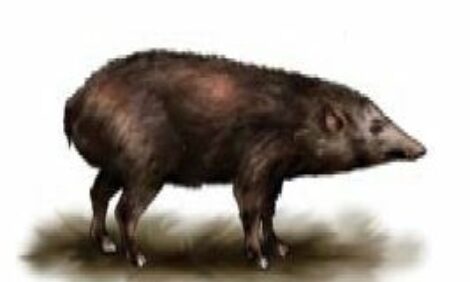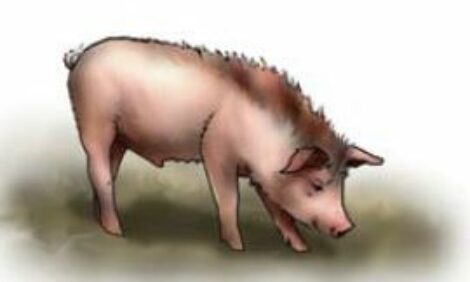



Jinhua
Jinhua belong to a type of swine found in central China, the region between the Yangtze and Zhu Jiang rivers where the climate is temperate and moist. Agriculture in this region is highly developed, the main crop being rice; the area is rich in feed and especially abundant in green and water plants which are used as pig feeds.
The Jinhua is characterized by its hair colour and meat quality. The animals have a white body, slightly curved back and loins, with black at the head and rump, leading to the common name of ‘Two-end-black’. The breed is especially noted for its thin skin, fine bones, and tender meat. These swine have a unique ability to hold water and have a generous amount of sarcoid fat, which is what gives the flavour of the meat it’s a sweetness that cannot be rivalled by many breeds. After special processing, ‘Jinhua ham’ is favoured for its attractive flavour and rosy colour and has a high reputation in the international market. Over three million Jinhua hams are sold annually worldwide.
Jinhua pigs are an early maturing breed, meaning they may be breed as early as three to four months. The nostrum of a gilt is in seventy to eighty days after birth, at approximately 105 days old they can reach an age of sexual maturity. The average litter size is thirteen, and the sow has seven pairs of teats. Another advantage with the Jinhua breed being their life span, many sows can have eight to nine years of successful breeding, producing approximately 20 herds of piglets.
Jinhua swine show great adaptability. They do well in all types of temperatures and climates, and have shown a great resistance to extreme temperatures. This particular breed has also been used in a variety of cloning projects. While some of these are very controversial it has been very successful with the Jinhua.
The pigs are most popular in the markets of Canada, Japan, China, France, and Thailand.








